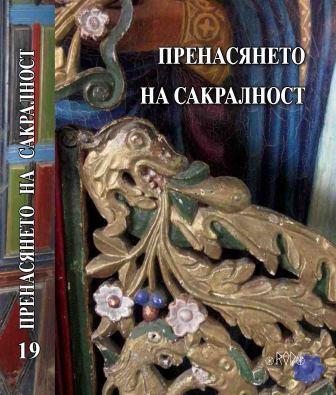СУПСТИТУТИ СВЕТОГ ДРВЕТА У КУЋИ У ТРАДИЦИОНАЛНОЈ КУЛТУРИ БАЛКАНА
THE SUBSTITUTES OF THE HOLY TREE IN THE HOUSE IN THE TRADITIONAL BALKAN CULTURE
Author(s): Dejan KrstićSubject(s): Christian Theology and Religion, Anthropology, Social Sciences, Customs / Folklore, Theology and Religion, Comparative Studies of Religion, Cultural Anthropology / Ethnology, Culture and social structure , History of Religion
Published by: Асоциация за антропология, етнология и фолклористика ОНГЬЛ
Keywords: traditional Balkan culture; holy tree; substitutes of holy tree; holy badnjak tree; wooden house ceiling beam; God;
Summary/Abstract: Traditional Balkan culture is defined by enormous diversity and archaic components in religious practices. One of its aspects is worshipping a tree as a cult object. In open spaces, most obvious examples are: 1. holy votive trees, so called zapisi or obroci which are dedicated to the feasts of smaller and larger social communities, 2. trees planted at graves (beside other grave marks) and 3. using of fruitful trees from a family house’s yard or wider surroundings in various customs. However, sometimes, in various occasions, instead of holy trees substitutes are used: parts of trees and wooden objects that symbolize trees, which have their roles in various rituals. This paper deals with substitutes of holy trees that are either brought into the house occasionally or they are constantly present in the house making the space sacred to some extent. Sometimes this is not obvious, but it becomes clear in custom or ritual context. The substitutes include 1. Christmas badnjak tree and its parts, 2. a small New Years (Christmas) tree branch, 3. a ceiling wooden beam 4. entrance door and its parts 5. the icon of a family patron saint 6. paskurnik – a stamp used for decorating of ritual breads 7. a small wedding day tree branch. Their presence in the house brings about a co-existence of humans and a deity embodied in a holy tree. Using ethnographic material and comparing to mythological elements in world religions, this paper shows that the core of religious worshiping of holy trees and their substitutes in the Balkan is a religious idea of the Father almighty, a supreme solar deity’s presence in the tree.
Journal: Годишник на Асоциация за антропология, етнология и фолклористика »Онгъл«
- Issue Year: 2021
- Issue No: 19
- Page Range: 46-85
- Page Count: 40
- Language: Serbian
- Content File-PDF

